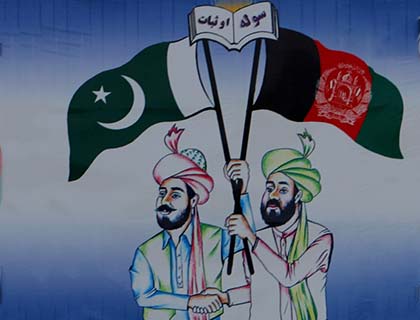While the main objective of US military strategists was to root out terrorism through “military measures” alone, the Americans have realized that today’s insurgency can be solved through ‘peaceful dialogue’ rather than unending war. Dr Barnett R Rubin, the Senior Adviser in the US Department of State on ‘Political Reconciliation in Afghanistan’ said that the “Obama administration believes the core objectives of intervention in Afghanistan i.e. to degrade and weaken the al-Qaeda as well as to de-link it from the Taliban have been achieved.
The US now wants to focus on how to prepare the way to the bulk pullout of foreign troops from Afghanistan. This means a renewed focus on political reconciliation in Afghanistan as well as expectations of Pakistan. The cut-off date for the troops’ withdrawal was also aimed at bringing Afghan government, Taliban and regional states together for finding a sustainable solution and to ensure regional stability. Moreover, the US wants to take the neighboring states of Afghanistan on board for reaching out to Taliban and to find a regional solution to the Afghan issue. That’s why Pakistan is so important”. White House Deputy National Security Adviser for Strategic Communications, Ben Rhodes, has recently stated that “dealing with Taliban issue with political means would be more promising”.
This shows that Pakistan’s point of view that says “the military might is not the ultimate answer—you can kill people, (but) you are not going to achieve anything” was right. Experience has shown that the US AfPak strategy towards Afghanistan and Pakistan was ineffective because its military options have been taken over by diplomatic possibilities.
A strong wave of change was noticed when the US hinted at the possibility of withdrawing all its troops from Afghanistan by 2014, and assigning Pakistan a bigger role in bringing stability to the war-ravaged country. “We very much support a Pakistani role, because there has to be a regional buy into the future of stability in Afghanistan, Pakistan, and South Asia,” White House official Ben Rhodes told a briefing in Washington.
Now it looks more and more palpable that America has finally reconciled with the idea of accommodating the Taliban as one of the primary entities, if not the main force, within the future power structure of Afghanistan. Many international observers say that full cooperation between Islamabad and Washington is critical to US efforts to stabilize Afghanistan before most NATO combat troops withdraw by 2014.
US Senator John Kerry, who heads the Senate Foreign Relations Committee, the main foreign policy-making body in the US Congress, urged Washington to re-establish a relationship with Islamabad which would go beyond the Afghan crisis. Obama’s nominees as his next secretary of state and defense secretary, John Kerry and Chuck Hagel, are both seen as supportive of a wide-scale military drawdown.
Serious efforts have begun to identify reconcilable elements in Afghan Taliban ranks following an international endorsement at the London Conference of President Karzai’s reintegration plan. The US, which wants the integration plan to be operationalized by the middle of the year, requires the support of Pakistan. The Pakistan and the US are systematically identifying their shared interests so that they can act on them jointly. Recent talks hosted by France have rekindled hopes for some sort of reconciliation between the Taliban and Karzai’s government. Advancing the Afghan reconciliation process, Pakistan recently released mid-level Afghan Taliban prisoners to help facilitate the peace talks between the militant group and Kabul government.
The fact that the Taliban have publicly recognized that they alone cannot dictate the destiny of all the Afghan people has opened many vistas for the resolution of Afghan imbroglio. Nonetheless, the sincerity of Taliban towards the idea of a perpetual peace and unified Afghanistan resolution invariably depends on the acceptance of the ‘multi-cultural entities of Afghan society; otherwise, there seems to be no end to hostilities.
A marked change in the Taliban’s belief systems that the Taliban tried to enforce on Afghanistan, have been observed that will lay the seed of dialogue process. Reaching a power sharing agreement is not the real issue; to change a conservative mindset while incorporating ‘moderate enlightenment’ will make a difference.

